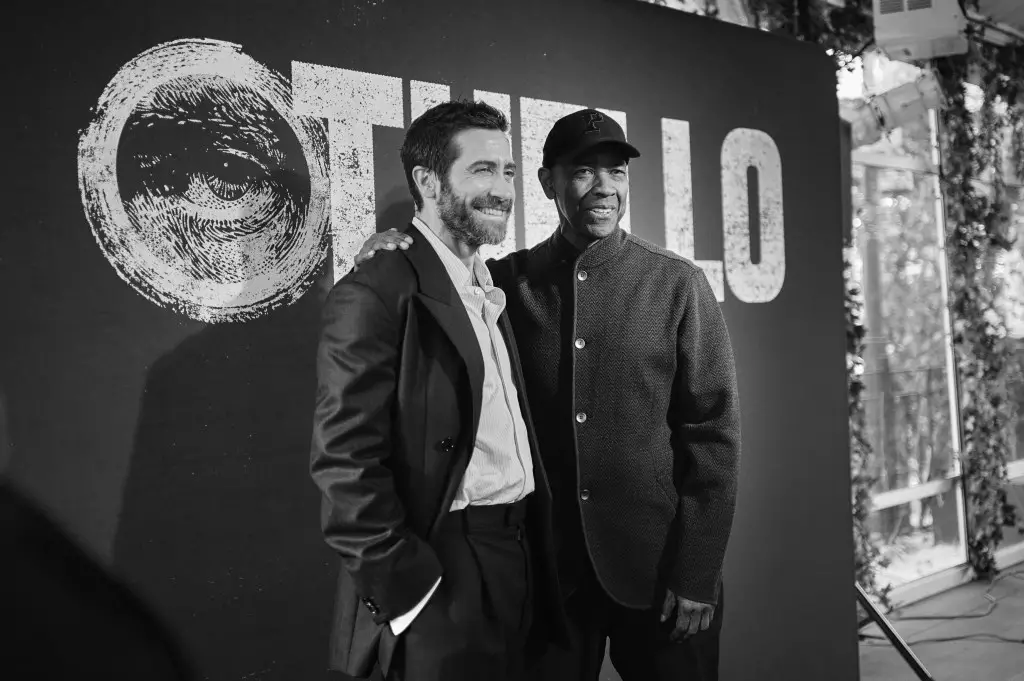Denzel Washington and Jake Gyllenhaal are names that resonate powerfully in the world of cinema, and their leap to the Broadway stage has created an electrifying buzz that many contemporaries simply cannot achieve. The recent opening of Othello, a Shakespearean classic, is a testament to the power of celebrity star casting. The production shattered records by grossing over $2.6 million in its first week, leaving previous Broadway hits like The Band’s Visit and Waitress in the dust. It’s remarkable how the allure of these actors can skyrocket ticket sales and grab headlines. This draws attention not only to their performances but revitalizes an entire industry that thrives on uniqueness yet often struggles to compete with the vast offerings of modern entertainment.
This raises an intriguing question: is it fair to argue that Broadway has become more about the “name” than the “craft”? This cannot be wholly dismissed, as the business side of theater is increasingly influenced by who is fronting the show. But what does this say about the future of the stage? If audiences are merely drawn by familiar faces, does this compromise the art form’s integrity?
The staggering figure of $2,637,158 grossed over just seven previews is a feat worthy of praise, but it also illustrates the immense financial stakes involved in theater production. Not only does Othello set new records, but it also symbolizes a shift in impractical expectations around box office receipts. High ticket prices, with an average of $361.90, have prompted a conversation about accessibility. While the production can afford these lavish rates due to star power, what does this mean for the average theatergoer who might be intimidated by such prices?
In the pursuit of profit, we must ask whether Broadway is alienating passionate theater aficionados for the sake of financial gain. The median ticket price across productions clocks in at $118.14, putting many classic shows out of reach for average audiences. With a dizzying advance of $27.5 million already amassed by Othello, dependency will increasingly lean on marquee names rather than diverse stories or unique productions.
At its core, Othello is more than just a commercial production; it stands as a reflection of the timeless conflicts of power, jealousy, and betrayal. Shakespeare’s work, recognized and revered worldwide, speaks to daunting real-world issues—ones emboldened in modern political contexts. Placing this narrative in front of a contemporary audience channels not just an artistic appreciation, but an involvement in ongoing discussions about race and identity, stripped from traditional theatrical conventions.
Despite the rush to modernize theater with new narratives, classic plays provide a familiar lens through which we can critically evaluate today’s issues. In this vein, the show’s relevance and significance cannot be overstated. It challenges the stereotype that theater is an anachronistic form of entertainment, signaling a renewed interest in performance art roots.
Broadway, while still a source of vibrant artistic expression, now faces unprecedented competition from other mediums such as streaming services, movie theaters, and even immersive virtual reality experiences. The success of Othello showcases an insatiable appetite for live performances, yet raises the question of sustainability. How long can such a thriving box office exist in a market that is consistently shifting toward digital formats?
Moreover, the emergence of other productions like Purpose and Operation Mincemeat, which seek their own audience and popularity, suggests a need for innovation and diversification in storytelling. The theater’s desire for exceptional economic performance has forced it to adapt, yet this can inadvertently dilute the grassroots movements that once defined its existence.
Ultimately, the staggering success of Othello encapsulates a dual narrative: one that is defined by financial triumph yet shadowed by questions of artistic integrity. While sifting through box office highs and attendance records, one cannot ignore the precarious balance between commercialism and the essence of art that once fueled Broadway.
Are we to view these developments as an exciting evolution of the industry or a worrying trend toward commodification? If Broadway wishes to thrive without losing its cultural significance, it must navigate these challenges with both creativity and caution, embracing the artistry that made it what it is while not shying away from the necessity of financial viability.
In this tumultuous landscape, Othello stands as a beacon of success, yet also as a reminder of the complexities lurking beneath the surface, posing fundamental questions about the future of Broadway.

